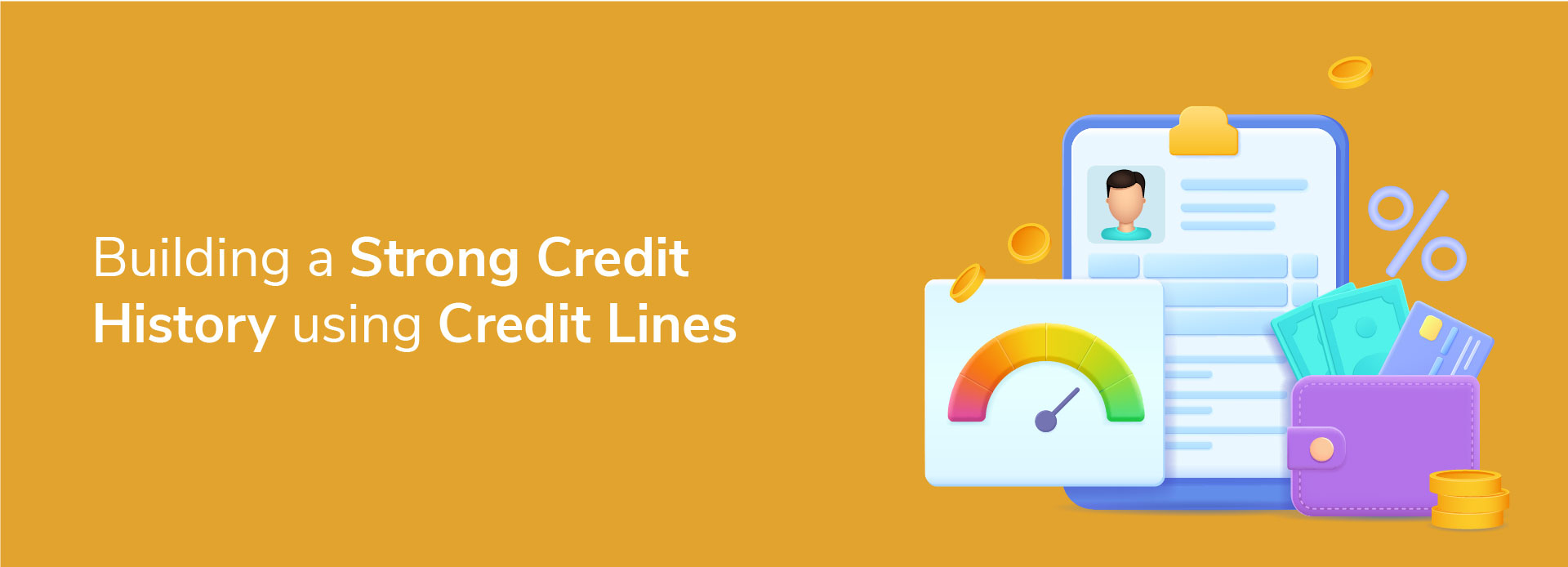
The Role of Credit Lines in Building a Strong Credit History
09 April 2024 | By INDIE
Credit lines play a significant role in building a strong credit history. They are revolving accounts that allow you to borrow money up to a certain limit. The lender determines the credit limit based on your creditworthiness.
When you use a line of credit (LOC) and make timely payments, it demonstrates that you are a responsible borrower. This, in turn, helps boost your credit score and builds a positive credit history. Having a good credit history is important because it enables you to qualify for better interest rates and loan terms in the future. It can also impact your ability to secure a job or rent an apartment. Therefore, using credit lines wisely can be a valuable tool for establishing and maintaining a strong credit history.
How to Begin a Credit History?
If you are starting to build your credit history, obtaining a credit line can be a great way to get started. However, it can be challenging to qualify for a credit line if you have limited or no credit history. In this case, secured credit cards or small personal loans may be good options to consider.
LOC loans are commonly used for personal and business needs, such as home renovations, education expenses or to cover cash flow gaps in a business. They can be obtained from banks, credit unions or online lenders.
When you use an LOC, you can borrow money up to a predetermined limit and pay interest only on the amount you use. It is important to make timely payments on LOCs, as missed or late payments can negatively impact your credit score and credit history. Using a LOC responsibly can help you establish and maintain a strong credit history. And later, it enables you to qualify for better loan terms and interest rates in the future.
Also Read: How is a Line of Credit better than a Personal Loan
What Is an Open Line of Credit, and Can I Apply for It with No Credit History?
An open line of credit is a type of loan that allows you to borrow money up to a certain limit. It's often used for ongoing expenses, such as home renovations or business expenses.
However, it may be difficult to qualify for an open line of credit with no credit history. Lenders use your credit score and history to evaluate your creditworthiness. Banks often offer secured lines of credit, where you can provide collateral to secure the loan. This collateral may include an asset such as a home, car or savings. This type of loan is easier to qualify for, as the bank is assured of repayment. However, it is important to read the terms and conditions of the loan carefully before accepting it.
Things to Pay Attention to When Building Your Credit History
1. Maintain a low credit card utilization ratio by using only a small portion of your available credit. Aim for a ratio below 30% to demonstrate responsible credit management.
2. A mix of different credit types, such as credit cards, instalment loans and retail accounts, can positively influence your credit score.
3. Avoid defaulting on any credit accounts, as defaults can severely damage your credit history and make it challenging to secure credit in the future.
4. Monitor your credit report regularly for inaccuracies or unauthorized activities. Address any discrepancies promptly to maintain the accuracy of your credit history.
5. The length of your credit history matters. Keep older credit accounts open, as a longer credit history can positively impact your credit score.
6. Requesting and responsibly managing credit limit increases can improve your credit utilisation ratio and positively impact your credit score.
7. Avoid excessive credit applications within a short period, as multiple inquiries can have a negative impact on your credit score.
8. Maintain an emergency fund to avoid relying excessively on credit during unexpected financial challenges, ensuring you can meet financial obligations without jeopardizing your credit history.
9. Read and understand the terms of your credit agreement. Be aware of interest rates, fees and other important details to make informed credit decisions.
10. Ensure that your personal information, such as address and contact details, is updated with credit bureaus to receive timely communications and maintain accurate credit records.
Conclusion
Staying on top of your finances and being responsible with credit is key to building and maintaining a positive credit history. By consistently paying your bills on time, keeping your credit utilisation low, and monitoring your credit report for errors, you can be set for success. So, enjoy the many benefits of LOC Loans and build a strong credit score. Remember, good credit doesn't happen overnight, but with dedication and discipline, you can achieve your financial goals and secure a bright economic future.
Get Your Personal Credit Line on INDIE Now!





